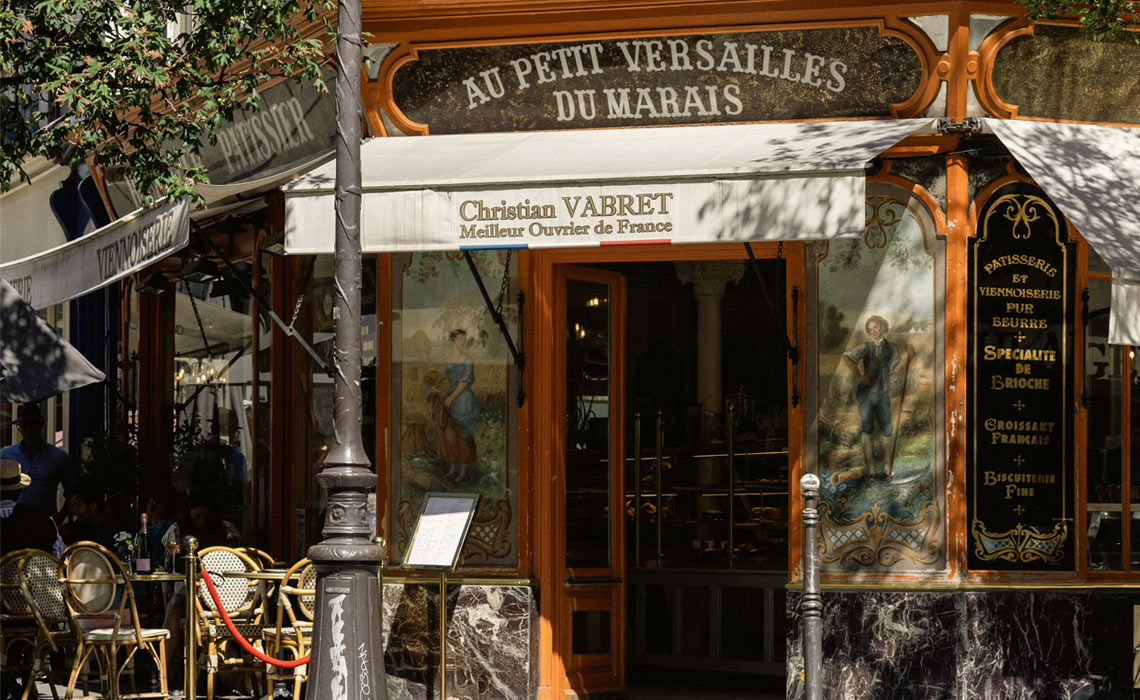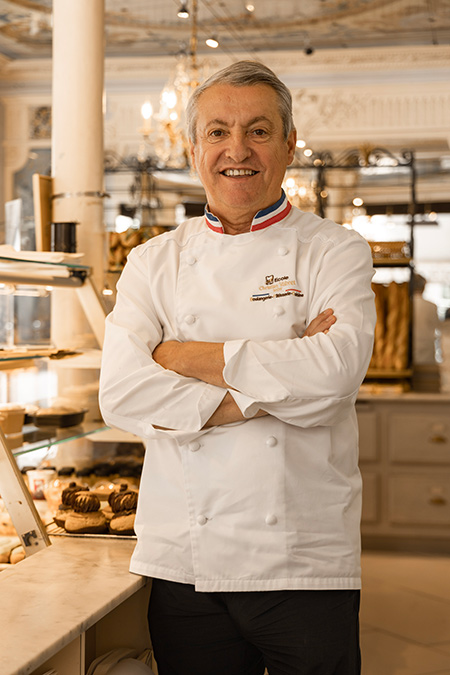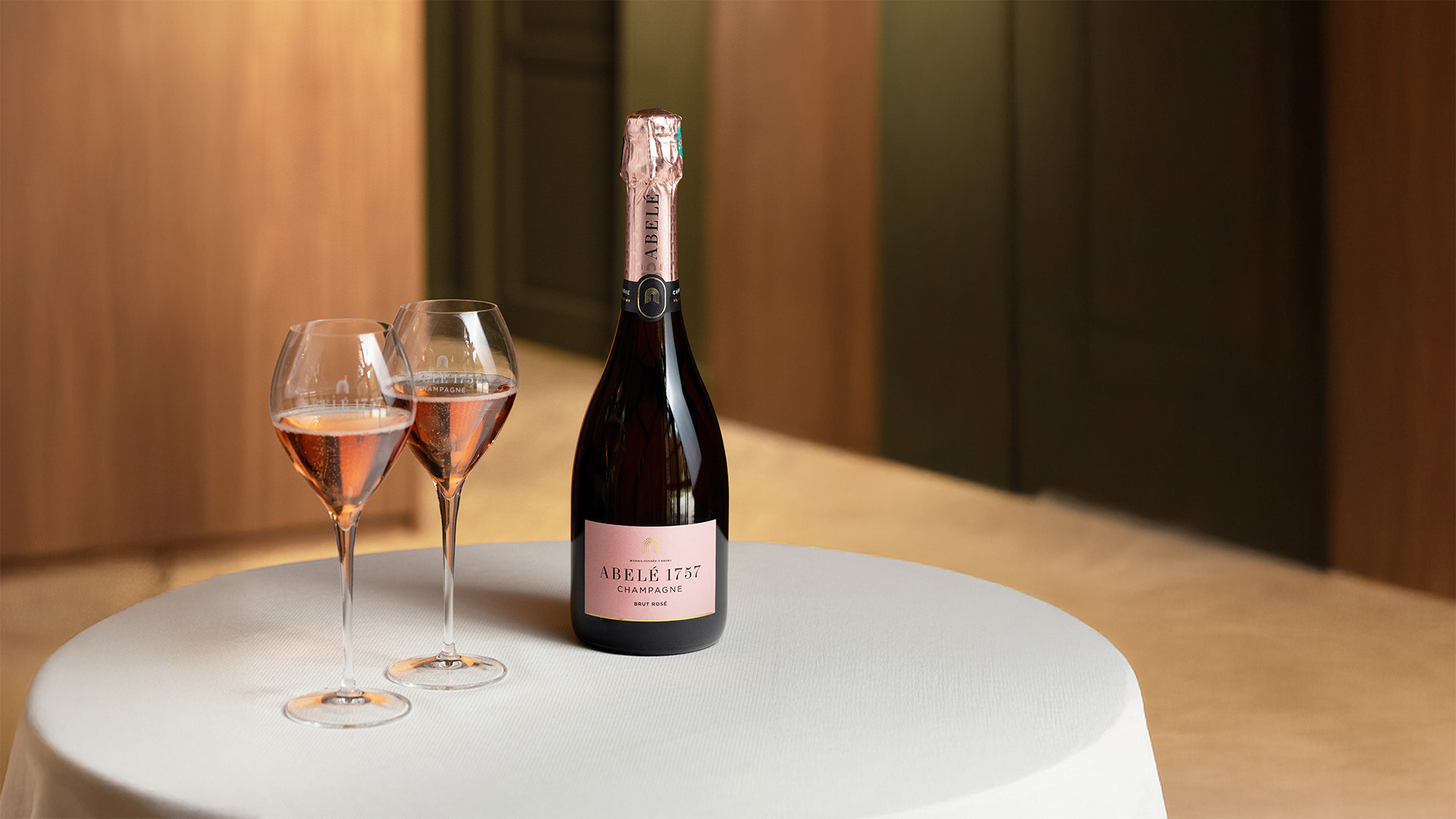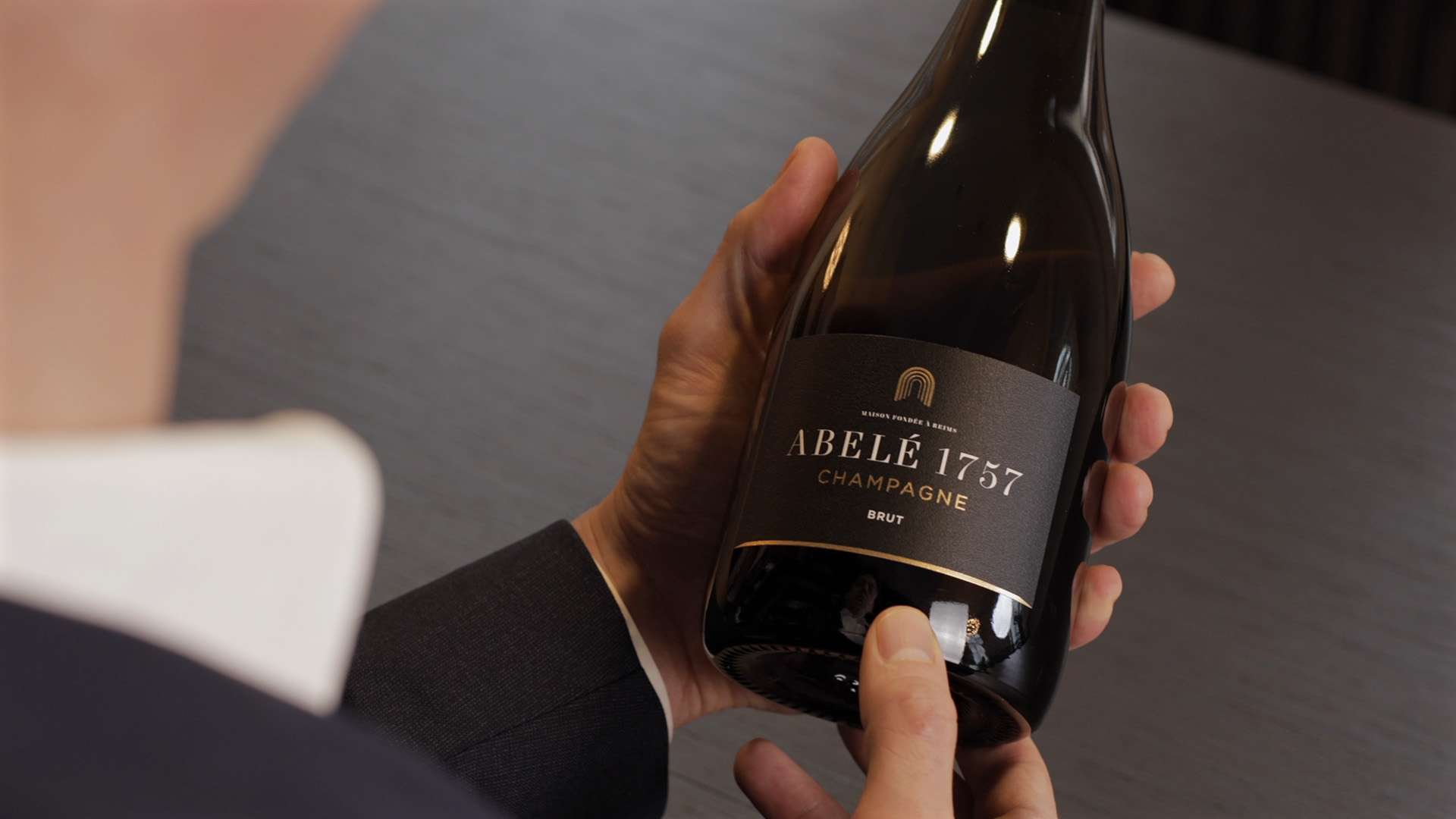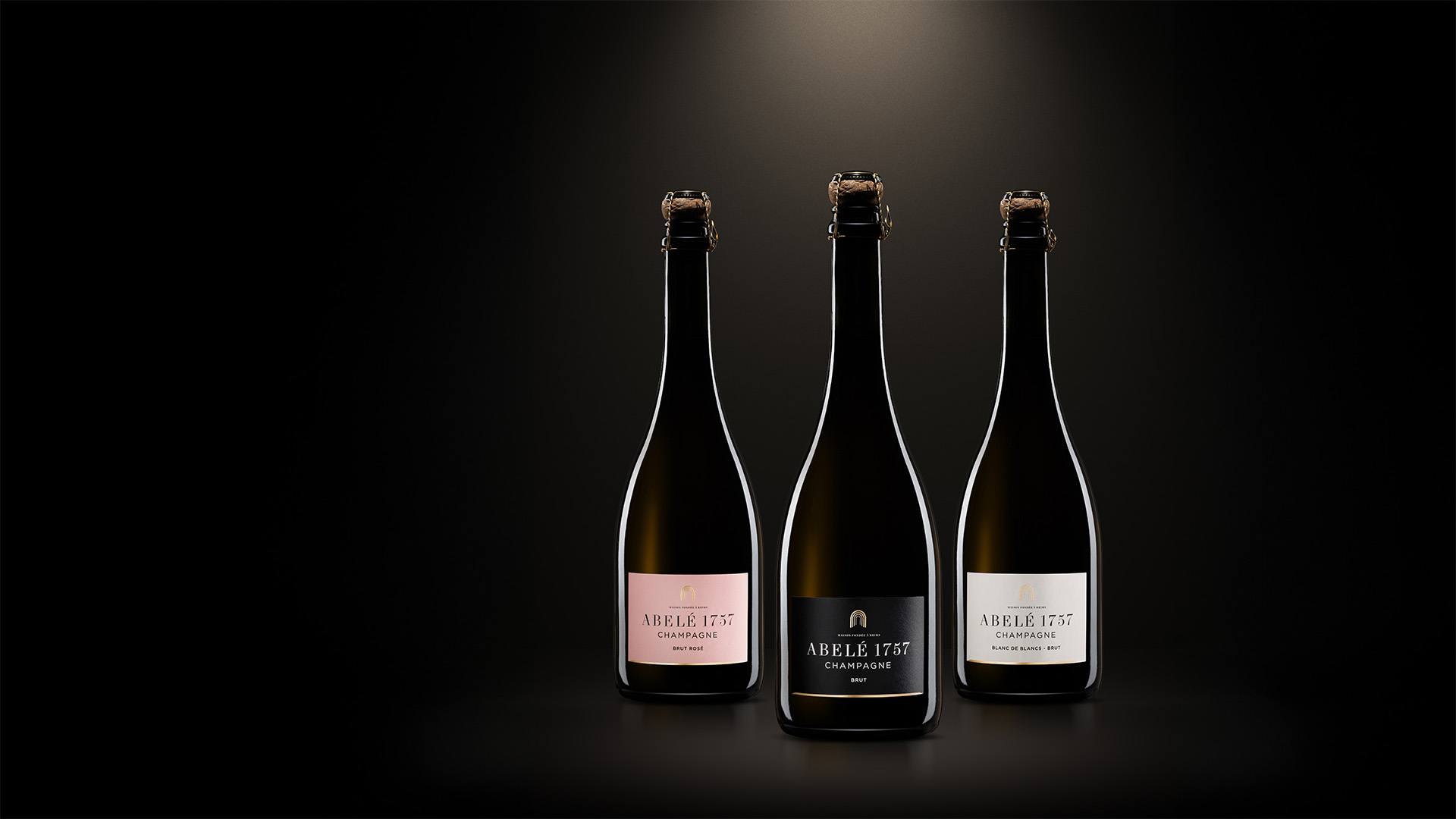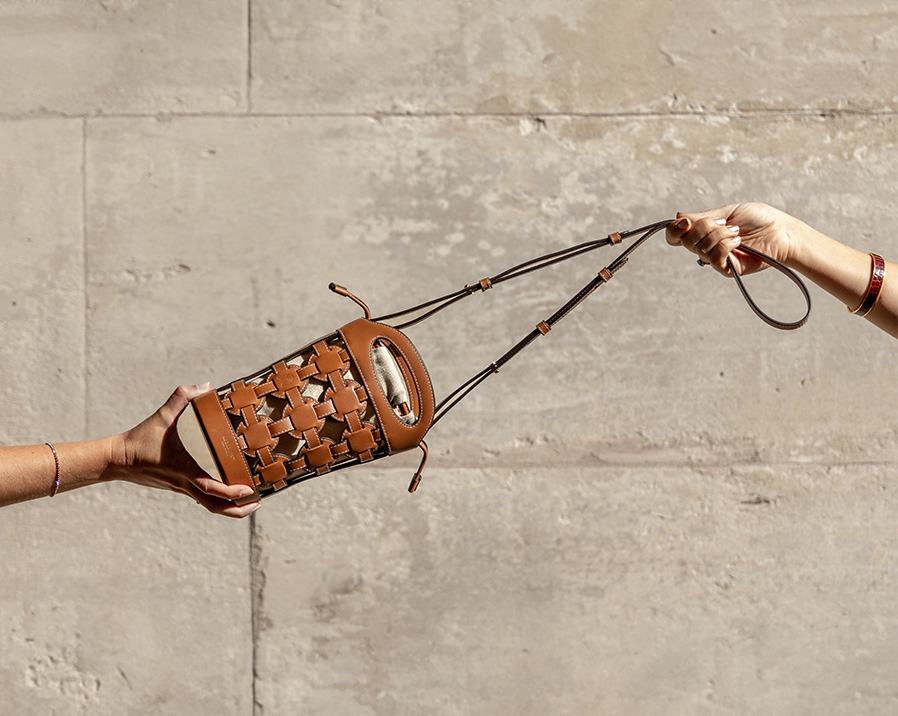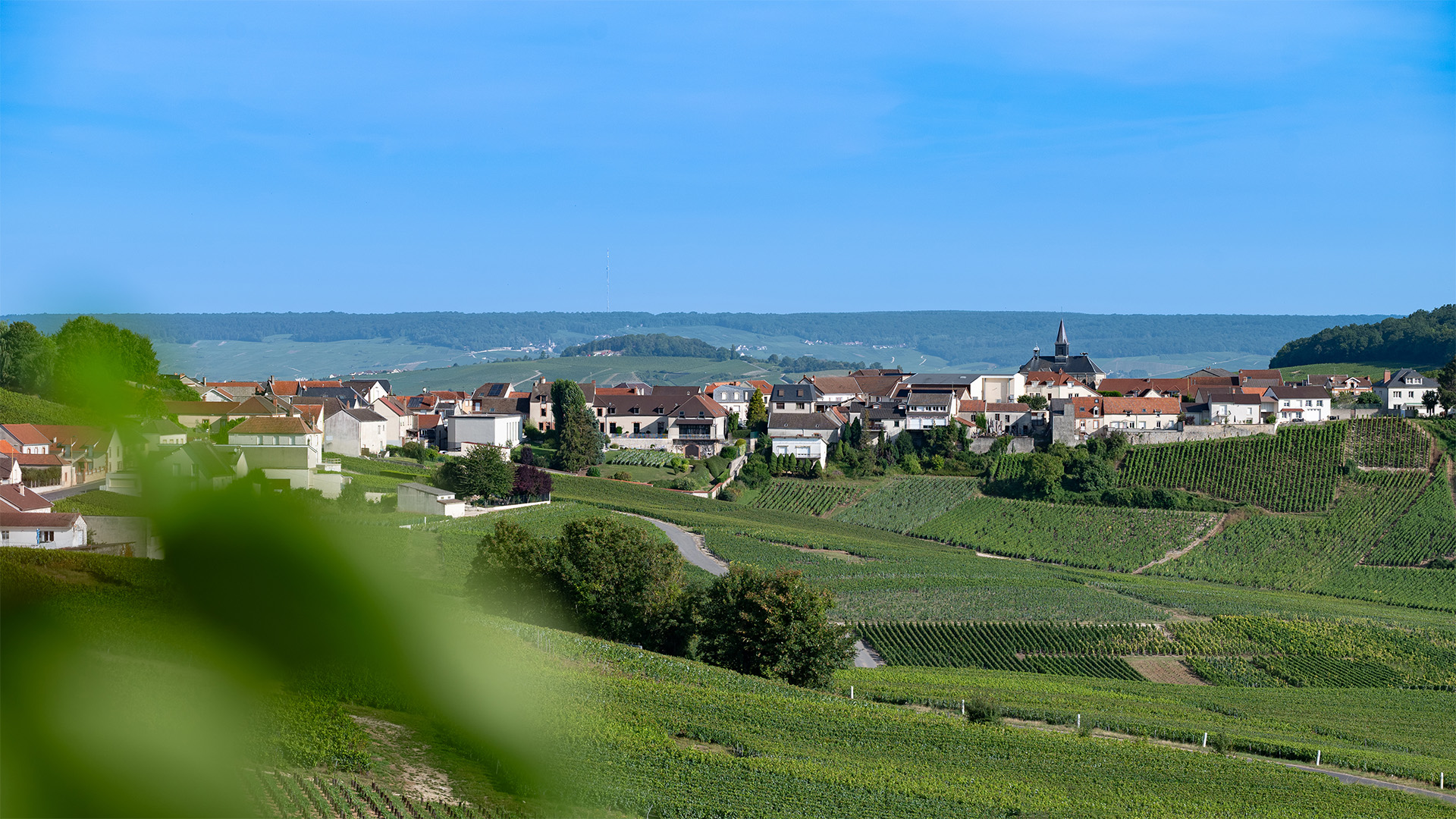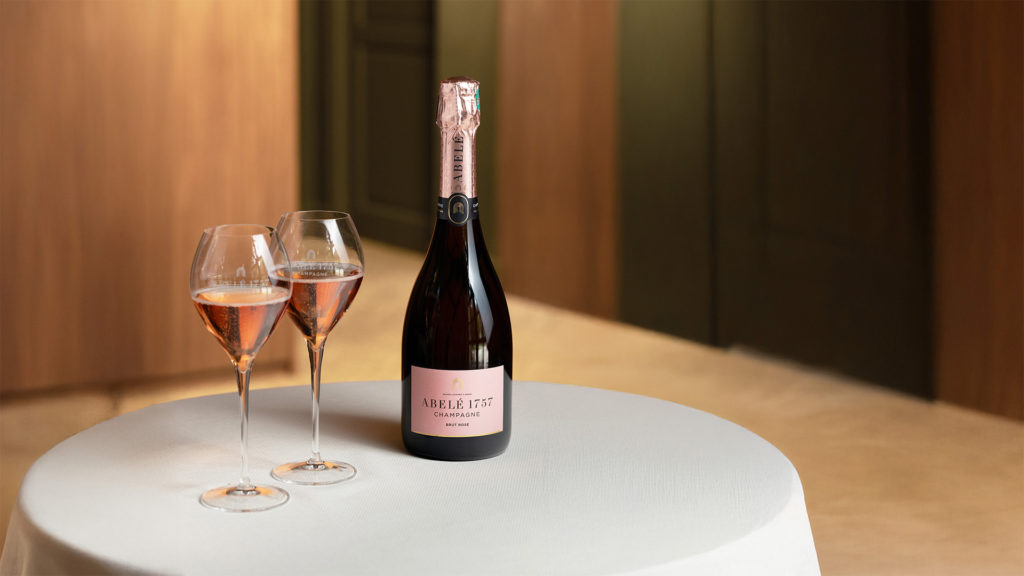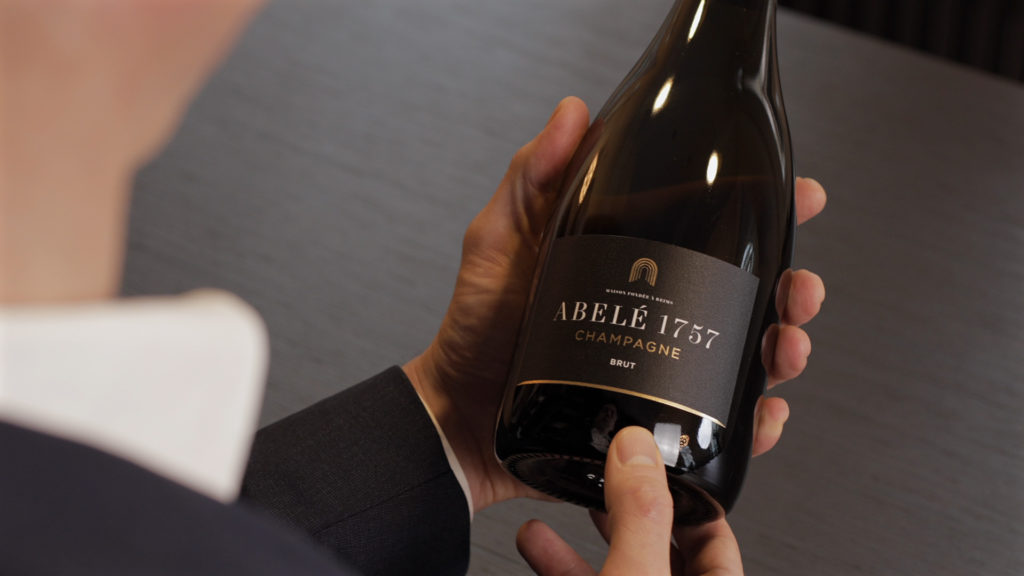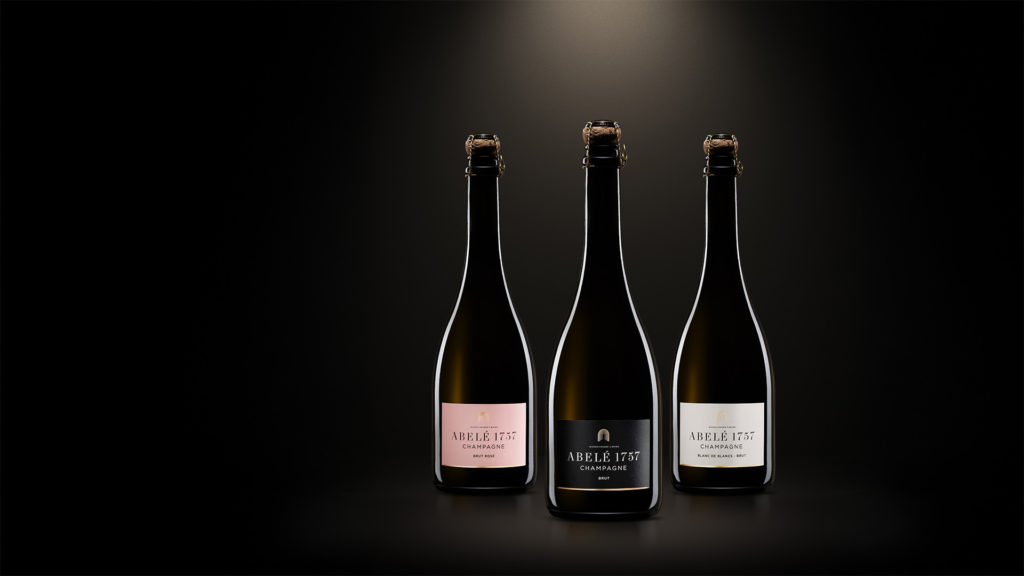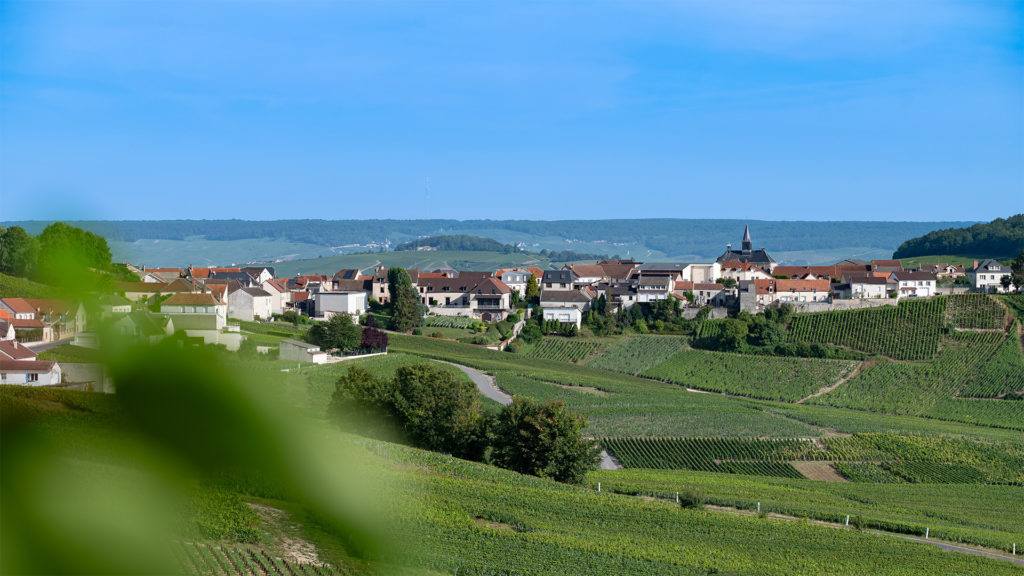Meilleur Ouvrier de France, arguably the ultimate accolade, pastry-chef, baker, globetrotter, teacher and entrepreneur, since the start of his career, Christian Vabret has amassed a roll call of impressive titles. From a very early age, the son of a baker from Aurillac, Rhône-Alpes, was destined to follow in his father’s footsteps. It was a passion that would take him as far as South America and Asia to share his love of baking. For Abelé 1757, this ambassador of eating well takes a look back at his career, the prestigious Meilleur Ouvrier de France title, and his passion for sharing his craft far and wide.
How did your love of patisserie all start?
As the son of a craftsman, I was lucky to be in the bakery at the crack of dawn. As a young child, it’s magical seeing your parents running around all over the place, the workers making bread, pastries and cakes. There’s so much to take in and it’s really exciting. It might seem mundane, but these kind of events make quite an impression on your early years.
I also realised very quickly that as a profession, being a baker holds a certain prestige. A shopkeeper delivers a service, but a baker brings something quite unique. I soon got my act together and began to seek out any opportunities that could one day carve a path to this career, making bread in particular. At the time, it wasn’t really ‘marketed’ like now. For me, this was a product that had the power to transcend both geographical and social boundaries, that could be served to the French President and the worker alike. As a product, it has strong values if made well.
All this gave me the chance to travel and promote French boulangerie and the unique skill of fermentation to a global audience. It’s a profession that requires love and patience, just in the same way as making cheese or wine.
Tell us about your career path
I initially learned at my father’s side, watching his every move, hands on with the workers. At the time, there was no such thing as college or training courses. This really bothered me – how could such an amazing profession not have an official roadmap or training course? How could I do about it? It would be several years before any specialised colleges for apprenticeships would see the day.
This realisation was the catalyst to set up my own training college. And aged just 30, I set out to do precisely that. It was an opportunity to build relationships, and make friends and networks around the world as a means to share this knowledge.
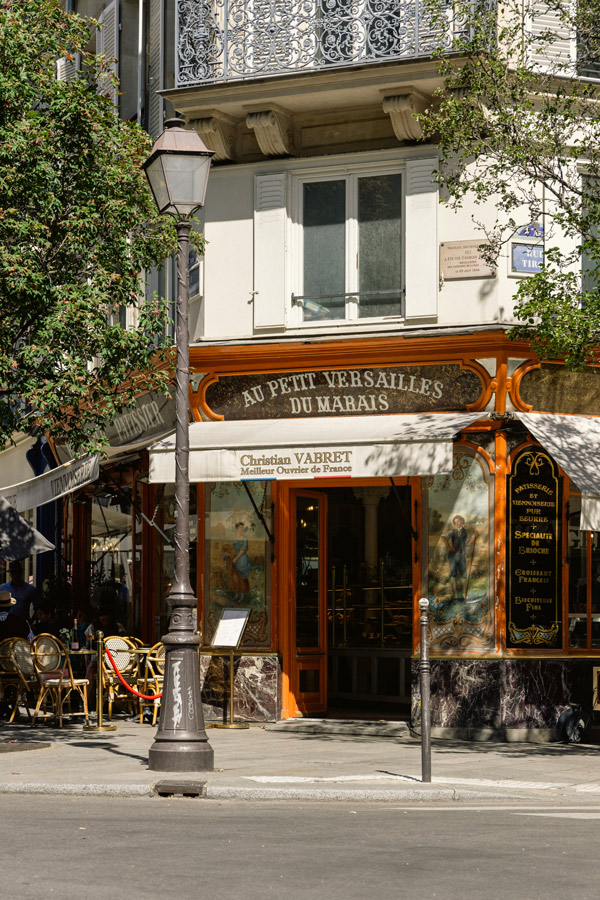
What inspired you along the way?
I have always drawn my inspiration from two things. First, being able to provide food and the way it is presented. Consumers are looking to buy locally. Our aim is to sell highly distinctive local foods, which have a particular link to history or a specific location, while at the same time tailored to a constantly evolving, modern world. Our products tend to be lighter and more intensely flavoured than in the past.
Then there is creating something new. People love discovering new products. Even if your traditional bread is good, your customers will always get bored in the end. And importantly, bread is now an important accompaniment in its own right. You have to be able to supply bread that will complement a menu, whether to serve with foie gras or meat in sauce.
And this philosophy with quality and originality at its core is an integral part of our daily life. Before we met today, I was still discussing a new cake with our pastry chef; it’s a tribute to Marie-Antoinette – a macaroon with the bust of the former Queen of France on top.
For Christian Vabret, what does it mean to be Meilleur Ouvrier de France, and what sacrifices have you made along the way to reach such an exceptional standard?
More than anything, it’s about being valued by your peers. Having been accepted for the preliminary rounds, I wanted to go all the way to achieve the ultimate title. Each Meilleur Ouvrier de France contest – or MOF in its shortened form – takes three years of intense, gruelling work. It’s a challenge not without sacrifice. You still have to do your day job and keep your team occupied. And then in the evenings, you spend your time honing your craft. It takes hours to go over and over the same techniques, create new recipes and go that extra mile to be the very best. It’s a huge amount of pressure.
For my first attempt, I finished second with silver. I was so disappointed I signed up for another three years, so in total, almost seven years working around the clock for the title. These were undoubtedly exciting years, but exhausting in equal measure. You need a strong team of friends and family around you to survive such a challenge.
Baking is an incredibly demanding discipline, fraught with limitations and sometimes more challenging than cooking in general. How do you maintain this level of excellence in your capacity as MOF?
More than anything, excellence is a mindset. From the moment you wake up in the morning! What we are seeing now is a hike in the cost of raw materials. Some company bosses may look to cut corners on quality to maintain profits.
An MOF has a totally different agenda. Our aim is to constantly deliver produce of the finest quality, prepared to the best of our abilities to satisfy our clientele. In practice, this means we adapt using readily available seasonal ingredients. It’s actually a limitation that allows our role as MOF to truly shine.
In addition to the produce, it is important to remember that human talent is the most valuable asset of all. We are fortunate to be supported by colleagues who are all extremely motivated. Through our shops and training centres in France, China and Chile, we are well-positioned to seek out new talent. Looking out for the next generation who want to progress within the company is absolutely key. It’s down to them and the teams in place that we are able to keep making progress and maintain our position at the top over time.
And these are the same young people who leave with specialist know-how; a know-how learnt from only the very best. The world of boulangerie-patisserie is a long chain where these skills are successively passed on. It’s a large family of which we are proud.
With such a long career behind you, what do you still find fascinating about your profession?
After so many years, it would be easy to become complacent. We have seen and accomplished so much that exhaustion and fatigue could easily grind us down. But when you see the look of satisfaction on a customer’s face, or are on the receiving end of such praise, you realise it’s all worth it to live another day. It’s such a rewarding part of the job. It would never cross my mind to give up. My philosophy focuses instead on the quest for excellence. “What will our customers like?”. Why get out of bed in the morning if not to surpass our limits?
Even if it would be easy to take a few days off and do nothing, I would rather drop in on a colleague or producer who may just be the catalyst I need to come up with a new product, or encourage me to try something new. It’s these encounters that provide the motivation I need on a daily basis. And don’t forget that our role also changes with the seasons. We are constantly evolving. As one chapter ends, we are already looking ahead to the next.
Who are your mentors, and why?
My father, without a shadow of doubt, who taught me my craft. When I was starting out, there wasn’t anyone, or at least very few, who were well-known in bread-making. It was difficult to stand out among your peers, who could have given me some guidance. Other than my father, I drew inspiration from chef Paul Bocuse. I had followed his career over the years in magazines and documentaries. Everything he accomplished served as the driving force to make me wonder: “How can I bring that to making bread?”.
I remember going to Lyon and going behind the scenes at Bocuse d’Or, one of the most prestigious international cookery competitions. Four years later, I was inviting friends from all over the world to the very first Bakery World Cup (Coupe du Monde de la Boulangerie).
But aside from what Paul Bocuse has achieved professionally, I was also inspired by his own story. Back in the day, he would repeat over and over: “Get out of the kitchen, go into the restaurant and spread the word”. To set the example, he would take to the road and promote French cooking on a global scale. He showed me what it meant to be daring. As soon as I could, I left the bakery to cross to the other side and spread the word.
Like Champagne, with its international acclaim, what is the role of French patisserie on a global stage?
We are lucky to have careers that travel really well. Bread and pastry-making are very on-trend. Not only are our products of high quality and taste delicious, they are essentially well-balanced and look great too. This is not always the case in other countries. The US sometimes get some coverage with real show-stoppers, but the products have very little or no taste at all.
Asia, on the other hand, has earned a reputation for its great precision. The chefs there have managed to be inspired by French excellence, and have even gone one step better. They have realised that it’s all about taking time. Unfortunately, sugar is something of a taboo in Asia and pastry-chefs have had to adapt recipes to local tastes. The end result is not quite as impressive.
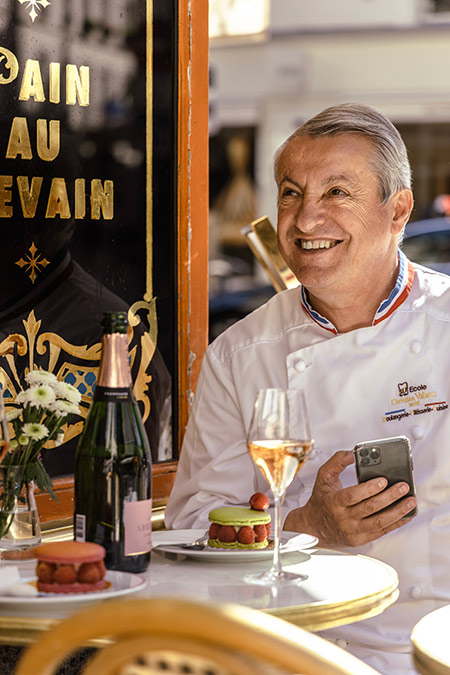
Christian Vabret, it’s also about passing on these skills through your colleges. Could you tell us how this particular aspect of your work is important?
When you are an artisan, you sometimes have to work on your own. You can spend entire nights, just yourself and your ingredients. It’s quite intense and private. And yet in contrast, when you work alongside a colleague, the atmosphere transforms into a whirl of conversation, and because we tend to say what we think, confrontation too.
But essentially, the more support around you, the more you’ll be motivated to share certain ideals, such as rigour, attention to detail and perseverance, which all make up the rich fabric of our profession. I have this feeling of elation on a daily basis at my college. We have people from all over the world, beginners and professionals alike, who come to learn and hone their craft. We have such amazing discussions, starting early in the morning at work, and finishing at the end of the day over a glass of champagne.
This is when friendships blossom. Since the very start of my career, I have been fortunate to meet some incredible professional contacts. This idea of sharing our skills can develop into friendships. The people that move in these circles are just passionate about what they do.
How is time an ingredient in its own right in patisserie? How does this affect your profession?
We have to respect time in our professions for several reasons. In both bread and pastry, time plays a crucial role. We always have to concentrate and predict the quantity of produce for the following day. In the same way as cheese and wine, time is an exceptional measure that will shape quality produce. In some respects, we surf the wave of time.
From a personal perspective, I still feel very young at heart (he laughs). It’s my body that lets me down and limits what I can do. As head of a company, I am always wanting to launch new projects, but realise the clock is ticking, and there’s never enough time. And yet I still do my job in the same way I did when I was 20. So far, my life has been filled with happiness.
Text – Geoffrey Chateau | Photo – Julien Gérard-Maizières
